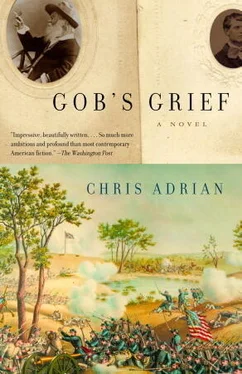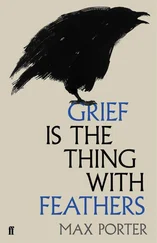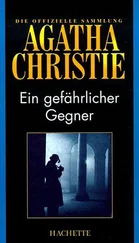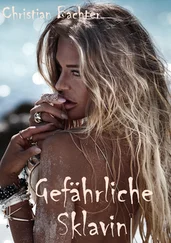Will built the glass house on the roof. There was a derelict greenhouse up there, whose clear panels he tore out and replaced with the boys by the church, the boy with no hips, the catalogues. All the hundreds of negatives became four walls and a roof. Finally, there was Jolly’s picture — it went over the door in what Will thought must be the position of honor. Will put it in place, the last panel, and the house was finished.
It still lacked an hour till dawn. He went inside without a light and sat in the middle of the house. It was likely and certain and necessary that something would happen when the sun came to shine down on him. But what? Would the white ghosts assault him? Would he hear Jolly’s voice whispering a question? Would the mist that might be Jolly’s spirit depart from the plate and settle over Will like manna? Maybe ghosts would crowd the house, and maybe Sam would be among them. Maybe Will would fall asleep under their images and dream their vanished lives.
Maybe nothing would happen. Dawn was in the sky, now. The sun was just starting to peep over a neighboring building. Will closed his eyes and he waited.
IN SEPTEMBER OF 1867, WILL SAT IN THE AMPHITHEATER OF the Bellevue Medical College with his head clutched between his hands, staring fixedly at Dr. Gouley, a lecturer in morbid anatomy. Dr. Gouley was a sweet-looking man whose gentle voice belied the gruesome content of his lecture. “The skin of the child,” he said, “was dry and hard and seemed to be cracked in many places, somewhat resembling the scales of a fish. The mouth was large and round and wide open. It had no external nose but two holes where the nose should have been.”
“Are you all right, Will?” asked his neighbor, a small young man named Gob Woodhull. As there were no proper seats left in the crowded amphitheater, they sat next to each other on the steps. “Are you going to have a fit? The way your eyes bulge, it worries me.”
They had met a month before, after Will had collapsed in the hospital hallway. When he came back to his senses, Will was in a bed in Ward 10, surrounded by noisy consumptives. Little Gob, for all that he looked like a fifteen-year-old in store-bought whiskers, had picked him up in the hallway like a child and carried him to bed. “It’s a divine affliction, what you have,” he said.
“It’s not,” said Will. He could barely see, and he felt cold, though it was hot in the ward. No, it wasn’t divine, what he had. They were from the glass house, these attacks of sympathy that culminated in shaking, foaming fits. Medical school was the last place he should be, in his condition, because the sad natural histories of disease became personal to him. His mind would come loose from its moorings and drift on tides of turbulent fancy, so he found himself becoming the sufferer, or someone who loved the sufferer, and he would contemplate their troubled, failing lives until the fit came along, inevitably, and put an end to it. He’d collapsed in the hall on account of a young German mother, recently delivered and now afflicted with a debilitating fistula that made her smell so horrible her family had turned her out of the house. He hadn’t cared so much for other people’s trouble in the past. Even his own mother’s agony had occurred at a distance remote from his heart, but the house had changed that.
In the amphitheater, Will told Gob, “I’m very well, thank you.” But he was not very well. Dr. Gouley was lecturing on Harlequin Fetus, a rare but especially awful congenital deformity, and Will feared that he would soon be overwhelmed.
“The eyes appeared to be lumps of coagulated blood, about the bigness of a plum, ghastly to behold. It had no external ears, only holes where the ears should be. The hands and feet appeared to be swollen, were crumped up, and felt hard. The back part of the head was very much open. It made a strange kind of noise, very low, which I will now attempt to imitate.” Dr. Gouley cleared his throat, lowered his head, and emitted a rumbling bass cry like the complaint of a sickly cow.
“Fascinating,” said Gob. “I should have liked to examine it.” Another student shushed him. Will closed his eyes and saw a hideous, bark-skinned Harlequin Fetus toddling out of the blackness in his mind. It held out its crumped-up hands at him and from the shocked O of its mouth came a word: “Papa.”
“You’re about to blow, aren’t you?” said Gob. “Should I take you out of here?”
“No,” Will whispered. He imagined the poor mother who gave birth to such a child, how her bliss would become horror when she saw the thing that had emerged from her. He did not want to hear any more.
“It defeats the purpose of a lecture,” said Gob, “if you plug up your ears.” This time, he was assailed by a whole chorus of shushings.
“It lived about eight and forty hours,” said Dr. Gouley, “and was alive when I saw it.”
Debilitating sympathy, fits, spirits — these were the gifts of the house. Something must have happened as Will sat there, with the sun shining bright but not warm through the picture panels, though in fact it had seemed at first that nothing happened. He had looked around at the confusion of images on the floor and on himself, but he felt no different. Ghosts did not detach themselves from the picture, Jolly’s soul did not come sifting down upon him. He fell asleep and had a perfectly ordinary nap.
He spent the whole first day after he’d finished the house at mundane tasks, cleaning, eating, writing up an advertisement for people to come get their portraits taken by him — he’d started a little business and was doing pretty well at it — and he went to bed feeling disappointed and relieved that nothing had happened. But he woke in the early morning to the sound of artillery, great crashing booms that sounded as if they were being fired from just below his window on Fulton Street. When they were small, Sam had tried to teach him how to wake within sleep, to know he was dreaming while he was dreaming. “Then you are the master of your whole world,” Sam confided. Then you could fly, or squeeze ice cream from a stone, or turn animals to chocolate with your touch. Will could never learn to do this. But when he woke that night surrounded by people staring down at him, he figured he must at last have woken up inside a dream.
He reached to touch Jolly, hoping to turn him to chocolate. Jolly was moving his mouth but Will couldn’t hear him — he thought he must have been deafened by the cannon. Jolly was solid and very cold. He would not turn to chocolate, or stop moving his lips. The others were talking, too. Frenchy and Lewy Greeley and even Sam, who stood away from the bed and looked at Will like a stranger. There were many boys from the Third Onondaga, some of whom he’d barely known, and there were boys Will had never seen before. All of them were chattering at him silently, except for one, a boy who looked like a tatterdemalion Gabriel, because he was dressed in shabby clothes and had only one wing where a more affluent angel would surely have two. The boy did not move his mouth, but only stared and put a bugle — it was bright and pretty, not shabby at all — to his mouth to blow it noiselessly. Will closed his eyes as the artillery sounded again, trying to wake up. But he was already awake, and when he opened his eyes all his guests were still with him.
“I mean to make a pilgrimage,” Will said to Gob, “to the valley of Aesclepius, where I will tie the carotids of a rooster and make a sacrifice of him. Will you go along with me?” Sometimes, Will thought that if he left the country the silent ghosts would not be able to follow. Wasn’t it said that they could not cross water? Yet they followed him easily enough across the river from Brooklyn.
Читать дальше












